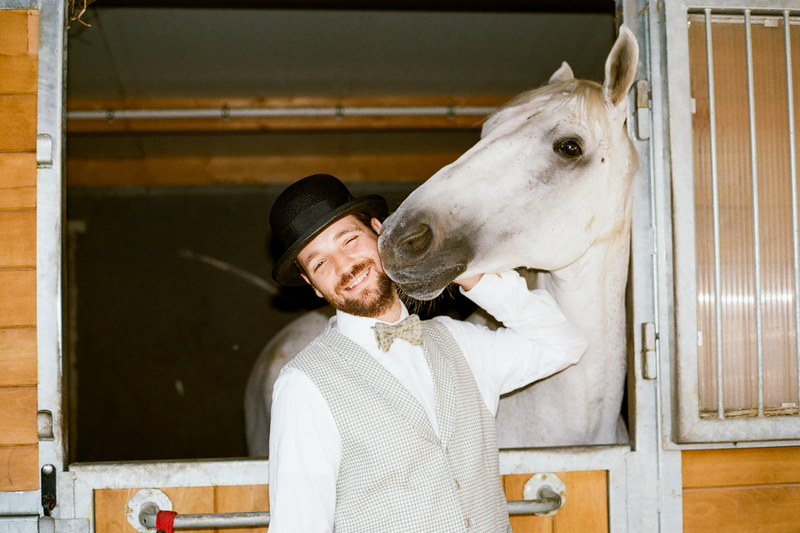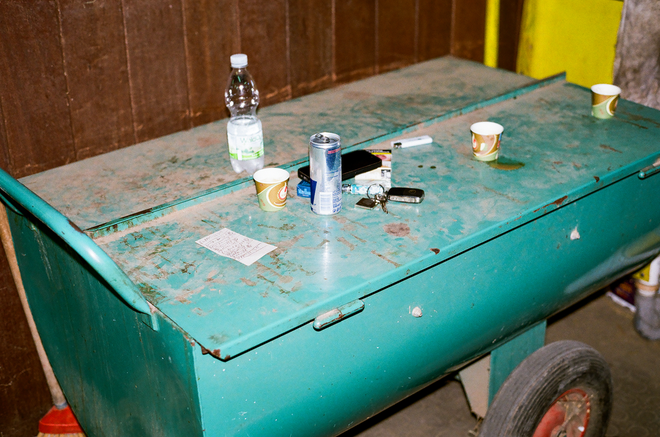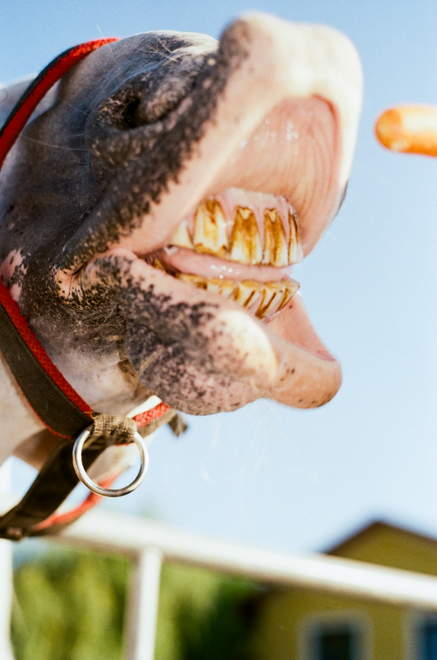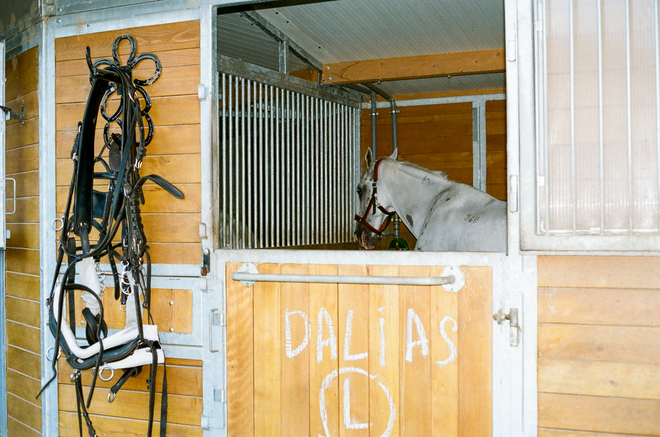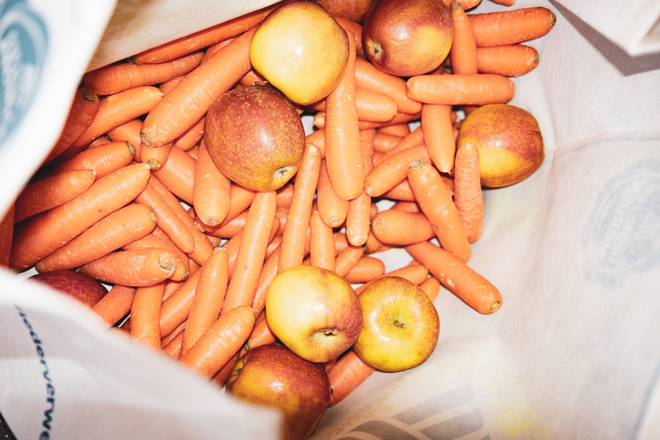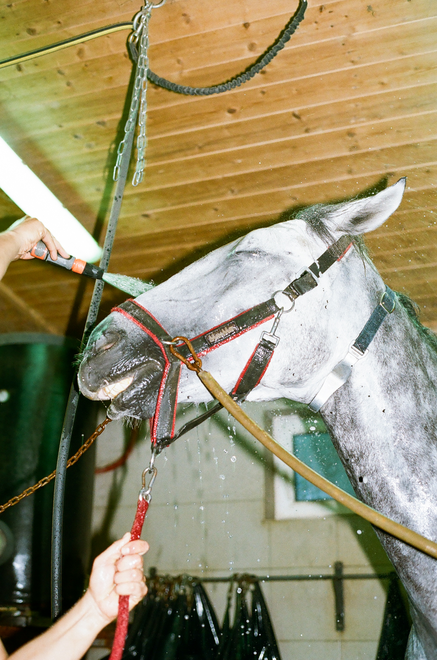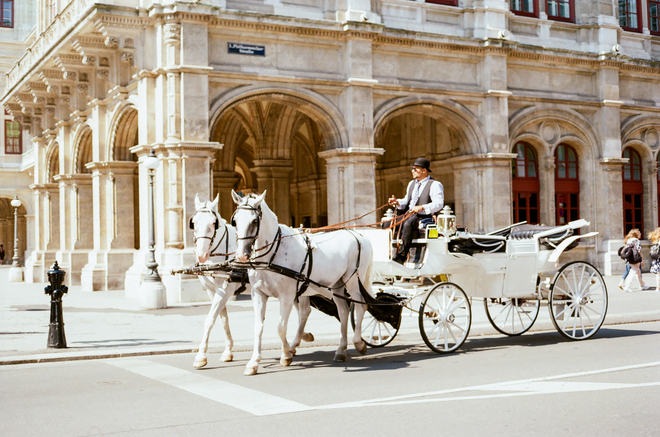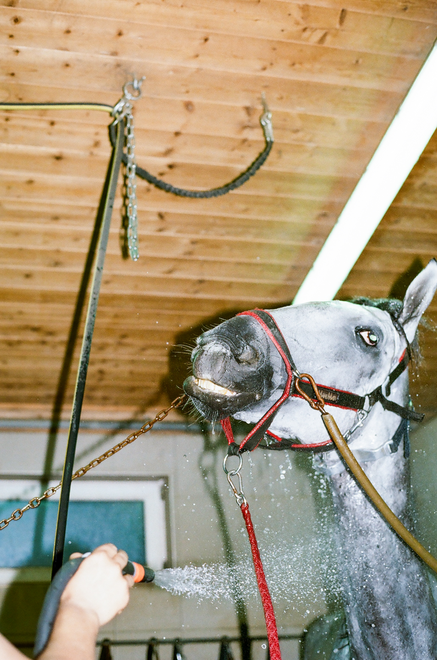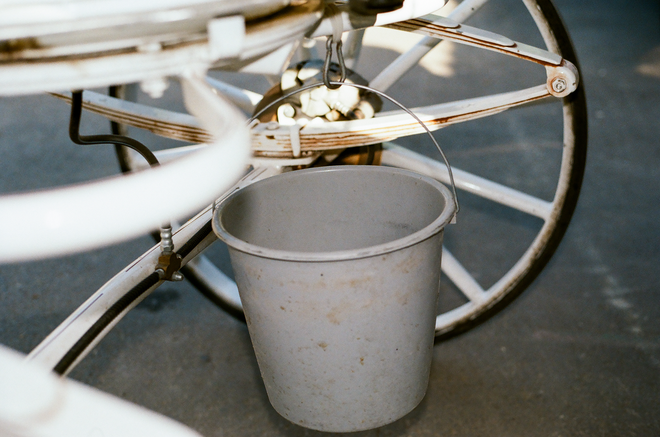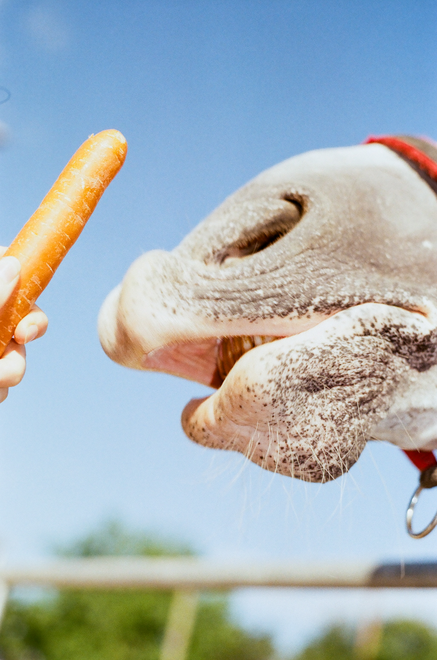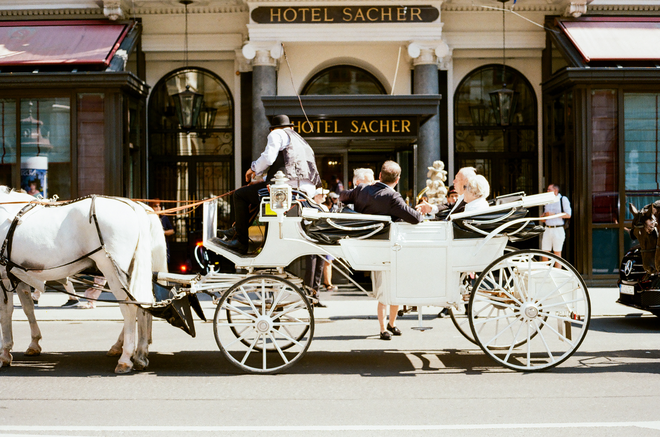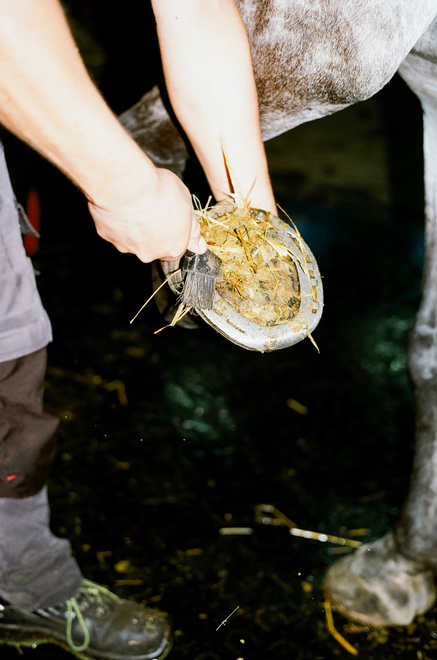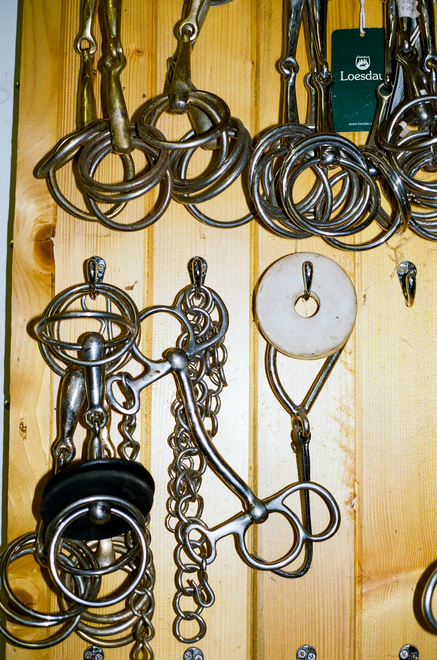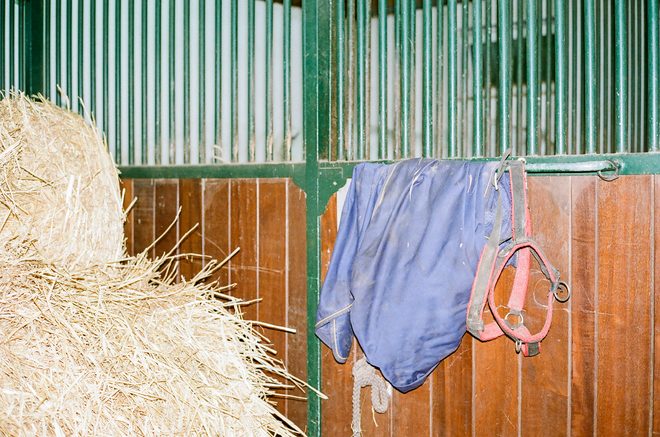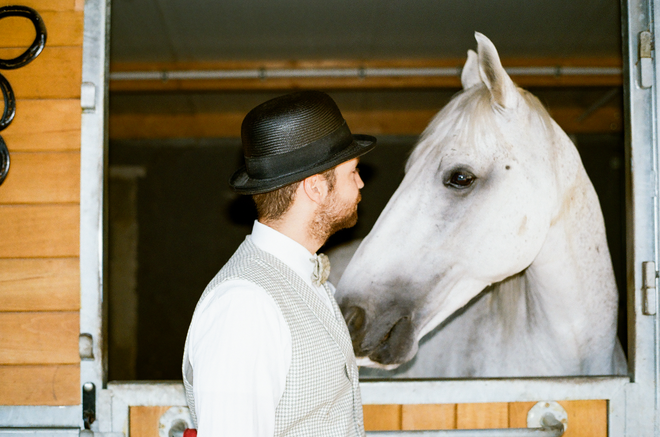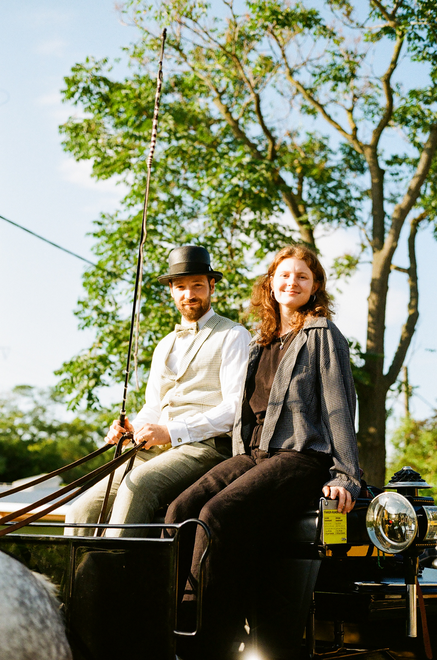Road apples not liver paté
Vienna’s Fiaker are a symbol of tradition and romance on the one hand, but also a source of controversy – cultural heritage or time for abolition? We met Marco Pollandt from Fiaker Paul & Riding Dinner at the stables and join him for a carriage ride through Vienna.
“Take me to the next bordello!”
Julia Bauereiß: You’ve been a Fiaker carriage driver for quite some time. Can you tell us a few funny anecdotes about your passengers?
Marco Pollandt: Plenty! We’ve had couples who have thrown champagne in each other’s faces and argued so fiercely during the ride that one of them wanted to step out. Our old coachman Karl was once booked for a wedding. He was waiting with his carriage in front of the church where the bridal couple was supposed to step out together. In the end, only the groom came out and said: “Take me to the next bordello, whatever the cost.” The woman apparently answered “no” to the question of all questions.
Ever chauffeured celebrities?
Sure, our company drove Princess Diana and Prince Charles in the 1980s and Michael Jackson in the 90s. More recently, I personally gave a ride to rapper Ufo361.
Why are horse-drawn carriages so deeply rooted in culture, especially in Vienna?
There are several myths and stories about our trade, but there are two key reasons. Firstly, the cabbie trade was founded in Vienna in 1693. Second, the traditional driving styles, there are only two left in practice nowadays, one being the Viennese-Hungarian style, which is particularly well suited for densely built cities. The driving skills of Viennese Fiakers were already highly esteemed in the days of the Danube Monarchy.
"James Bond, Habsburgs verkuppelte Töchter, Corsage"
Who was the coolest passenger you’ve ever had?
Queen Elizabeth’s head equerry. He was here with his wife for their 40th wedding anniversary, and they booked a riding dinner with champagne and sandwiches. The stable master told me that it had always been his biggest dream to come to Vienna one day and take a ride in a Fiaker carriage. They were only in town for six hours, just for the Fiaker ride. A loyal customer who lives in Germany and regularly comes to us for a ride fell ill with cancer. She wrote a letter to us saying that she wouldn’t be able to come for a while. We were so touched by her gesture that we sent her a voucher. Then she wrote back that this was her motivation to fight cancer. Last year, she was back with us in Vienna, and she had really beaten it!
What a great story! Many Fiaker stables are located in the 11th district of Vienna, why is that?
In the past, all heavy work was done with horse and carriage, primarily in today’s industrial areas, which is why so many stables were needed in this outer part of the city. With the advent of motorization, carriages made way for trucks. Until the 1960s, our company still transported bread and milk for the Anker bakery using heavy-duty carriages, special horse-drawn carriages.
What are the names of your favorite horses in the stable?
Mathy and Rangosh. One is a total sweetheart and literally begs for attention. The other doesn’t really want to be touched. They complement each other very well when driving. In our company, everyone always rides with the same two or three pairs of horses. We all have a relationship with the horses because they’re not cars, they’re living creatures with their own character and need to be treated individually. They are part of our family.
"Spat at and threatened with knife"
Being a Fiaker naturally involves a certain dose of Viennese humor, which can also be rather crude at times?
Some of our sayings come from prison jargon. Until the 1990s, there was no compulsory Fiaker exam, which is why many people with shady backgrounds worked in this profession. Today it’s different, you even have to have a clean criminal record, but some expressions have survived.
Which sayings are still in use today? “Auf der Guck stehen,” for example, actually meant that a convict “stood at the peephole” of his cell door, so right up at the front ...
… in Fiaker talk that means that you have pole position in the line-up of all Fiakers. Or “Sich jemanden zur Brust nehmen” (take someone to the chest) – if the horse didn’t parry, you have to pull the reins close to your chest. “Die Kurve kratzen” (scratching the curve) – it literally refers to how it was done in practice. Today, you can still see protruding guard stones at the foot of large doors and gates of old buildings like the Hofburg, which were used to prevent Fiakers from hitting the corners of the building.
What do you think, do the horses like working with you?
Their behavior suggests that they really want to get to work. If we harness the horses and it still takes a bit until they are all ready, they’ll scruff on the ground cause they finally want to get going. If a horse had the day off, you’ll also notice their over-enthusiasm – some want to set off right away and pull it all on their own.
“You can put these horses between an express train and a brass band.”
How do you think the horses perceive the urban environment?
Our horses have been trained and bred for this task and see the city as their territory. The horse cannot distinguish between a place of work or leisure like we humans do. In other words, they see Stephansplatz, just like their paddock and box, as their habitat. Pulling a carriage is just as much part of their lives as eating, sleeping, or drinking. They can handle different influences very well – you can put most of them between an express train and a brass band and they won’t mind because it’s normal for them.
If the horses are so used to the urban environment, as you say, why do they need blinders?
Without moving its head, a horse can see 340 degrees around itself. The blinders merely prevent the horses from seeing each other because the Fiaker has to be able to maneuver both horses independently. Otherwise, one horse would just imitate the other and two-horse riding would not work out properly.
In 2022, there was a debate about imposing a ban on Fiaker carriages. How could the Fiaker tradition be redefined in Vienna, and could a compromise prevent such a ban?
For me, there’s no compromise! Every decision towards abolition is a decision against the horses. Thousands of jobs depend on it as well. If someone told me to just find another job, then I’d get really angry. Being a Fiaker and working with horses is my calling, my life! Instead of imposing bans, it would be better to think about how to make the city more livable for animals, for us humans and our pets, which horses actually are. More greenery, better shading for horse-drawn carriages, or making the city as a whole more natural again.
"Riding Dinner: Cheeseburger & McDonald's"
Do you often encounter hostility?
Yes, I’ve been called an animal abuser on the street. That really hurts. It’s not just verbal attacks, colleagues of mine were spat at or threatened at knifepoint. But that’s just the tip of the iceberg and doesn’t happen every day.
What would happen to the horses if the Fiaker carriages were to be banned?
That’s a question I would rather not ask myself and no one can really answer. There are 324 bred and trained carriage horses in Vienna. They are all used to a lot of movement and exercise – so they would have to be ridden and kept moving properly, and their keeping costs would also have to be covered. Who is going to do that? Most shelters are already overcrowded. In the end, the horses would have to be slaughtered...
Can you imagine that passersby in the city take pity on the horses?
Yes, of course! But this is probably due to the lack of knowledge about horses that was common 150 years ago. Back then, horses were an integral part of the city, and, like all domestic animals, they adapted to the urban environment. Nowadays, people can’t tell the difference between a relaxed and sleeping horse and a weak and tired one, so they imagine all sorts of things. Moreover, people only see the horses in the city, they don’t understand that they have three days off per week and relax in our green paddock.
"Some of our sayings come from prison jargon"
What else do people not know about horses that is standard knowledge for an educated person like yourself?
There are many laws intended to protect horses, especially in Vienna. Horses poop about eight to twelve times a day, which adds up to 20 to 40 kilograms of road apples. A horse drinks 40 to 60 liters of water on a warm day – in Fiaker jargon, that’s four to six buckets. There are countless things I could mention.
Do the horses have to work for you until they die?
No, for God’s sake, they’re not worked to death! Our horses retire between the ages of 18 and 20 and then live even longer than average. They spend their retirement years on our 15-hectare farm outside Vienna, where they can trot happily around the paddock.
That’s a relief, no horse liver paté then?
No way! That’s forbidden by law. All horses ever registered as Fiaker horses cannot be slaughtered for consumption. The retirement of horses is a process, gradually they work less and less. As they need to keep moving, the pensioners occasionally work at film shoots or weddings. They’ve already been involved in James Bond movies, the Netflix series “Habsburgs verkuppelte Töchter,” and the film “Corsage.” They always have about two hours of daily work there, which makes them feel they are still needed.
Thanks for the conversation!

